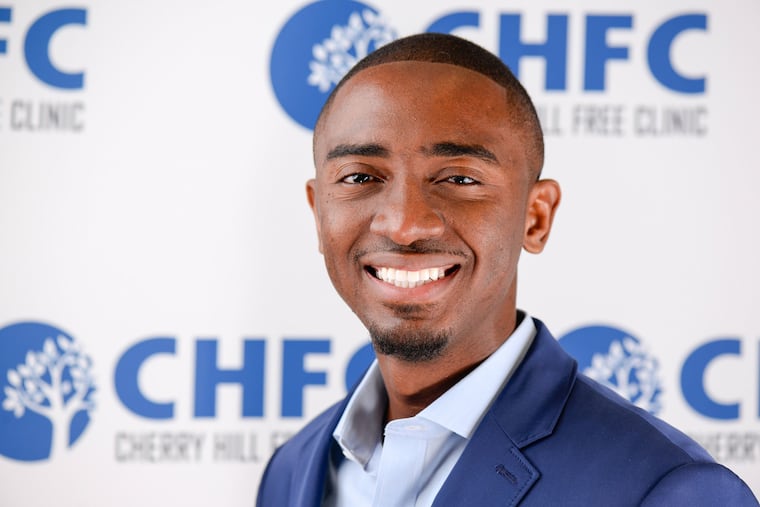Families hit hardest by COVID-19 pandemic also struggle the most with medical debt
Families hit hardest by the pandemic are also struggling the most with medical bills, according to a new report by the Commonwealth Fund.

On top of illness, lost jobs, and decreased income, families hit hardest by the coronavirus pandemic are also struggling the most with medical bills — debt that could keep them from climbing out of financial straits and have long-term consequences for their health.
Medical bills are a ubiquitous financial hardship for American families, regardless of income level, race, or insurance status. But medical bill and medical debt problems have increased most for working-age adults who lost income, lost job-based health insurance, or who became ill with COVID-19, according to a new report by the Commonwealth Fund, a nonprofit health policy research organization.
Black, Latino, and low-income adults reported the highest rates of lost jobs, lost income, and medical bill problems.
“A large share of people lost income and it was concentrated among people who have the highest rates of medical bill problems and debt even during good times,” said Sara Collins, vice president for health care coverage and access at the Commonwealth Fund.
The report, based on a national survey of 5,450 adults between ages 19 and 64 found:
About 55% of Black individuals, 44% of Latino individuals, and 32% of white individuals struggled to pay a medical bill or experienced medical debt.
Overall, a third of survey respondents reported lost income during the pandemic, with higher rates among Black (44%) and Latino (45%) adults.
Despite widespread job losses during the pandemic, just 6% of survey respondents said they lost employer-sponsored health insurance. About two-thirds of those individuals gained coverage elsewhere, such as through a partner’s employer, the Affordable Care Act marketplace, Medicare, Medicaid, or COBRA. The survey did not indicate how many people who lost jobs had no employer insurance to lose.
About 10% of working-age adults were uninsured in the first half of 2021, with higher rates among Black and Latino individuals.
Half of people who were uninsured reported trouble with medical bills. But the problems affected people with health insurance, too: 49% of people with Medicare, 40% of those with Medicaid, and 34% of people with job-based health insurance also reported problems.
Trouble with medical bills contributed to other financial problems. Forty-three percent of respondents said their credit score suffered and 35% said they used up their savings.
Jubril Oyeyemi, a primary care doctor who works mainly with Camden-area residents who are uninsured or covered by Medicaid, said the report’s findings mirror what he sees every day.
“The disparities we see in outcomes for the Black and Hispanic communities, those racial disparities in outcomes are there — they’ve been smacking us in the face all this time,” said Oyeyemi, who is medical director of the Camden Coalition of Healthcare Providers, which serves patients with complex health needs. “COVID just came and unveiled another level of that disparity.”
» READ MORE: Medicaid enrollment soars as Americans lose jobs to pandemic: ‘I never thought I’d experience this’
Medicaid enrollment has soared since the beginning of 2020 as people who lost income or job-based health coverage became eligible for the low-income health program. As a condition of receiving federal financial support, states agreed they would not remove anyone from Medicaid until the end of the public health emergency, which has also kept enrollment rates high.
An expansion of tax credits available through the Affordable Care Act marketplaces and extended enrollment periods have made it possible for more people who earn too much for Medicaid to sign up for private coverage. Others have taken advantage of new rules enabling them to enroll in COBRA — an extension of their job-based coverage that usually is very expensive — for free.
Still, patients who are uninsured or underinsured struggle with access to care — and that challenge is made worse by the fear of big bills, Oyeyemi said.
Uninsured patients are often reluctant to go to the hospital or seek the follow-up care he recommends because they think they won’t be able to afford it. Even patients who have insurance but don’t think their income can cover the out-of-pocket costs associated with a high deductible also tend to delay care until they are sicker. But by then, their illness often is more difficult and expensive to treat.
What’s more, the stress of debt and struggling to make ends meet can harm mental health, too, he said.
“Access to health insurance is really a proxy for access to health care,” Oyeyemi said.
The Philadelphia Inquirer is one of more than 20 news organizations producing Broke in Philly, a collaborative reporting project on solutions to poverty and the city’s push toward economic justice. See all of our reporting at brokeinphilly.org.